While the COVID-19 pandemic and its repercussions have continued into 2021, this year wasn’t as tumultuous as 2020, which put in a claim to be the worst year ever.
Much like 2020, this year has been dominated once again by the coronavirus pandemic but it was not all that happened this year.
The biggest news stories this year include the US election fallout, US military withdrawal from Afghanistan, Taliban return to power, the AUKUS deal debuts, the arrival of COVID-19 vaccines as the virus mutates, failure of countries at the Climate Change Challenge, and holding new rounds of JCPOA talks at Vienna by Iran and the five remaining signatories to the deal.
In this regard, we reached out to some of the prominent international politicians and figures to know what the most significant event has been in the world in 2021 in their viewpoints.

Dr. Osman Faruk Logoglu, a veteran politician and diplomat and senior member of Turkey's CHP believes that the most important event of the year like 2020 was COVID-19. "It changed all of our lives at home, at work and outside the home. It also proved that the international community failed to develop a sustainable global strategy to fight it."
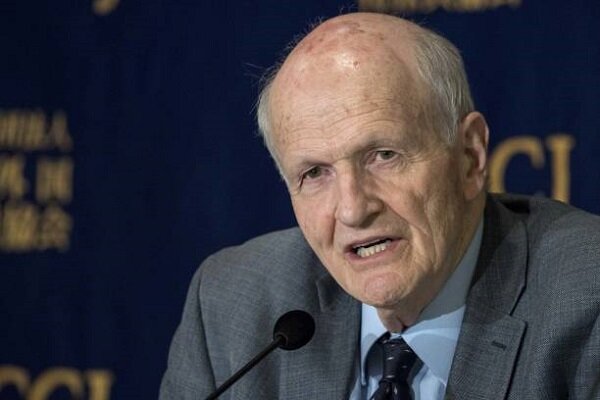
Prof. Frank von Hippel, American theoretical physicist and Professor of Public and International Affairs at Princeton University said, "For me, as an American, the most important was the defeat of the efforts of Donald Trump to remain US president."
"The future of democracy in the United States remains in peril, however, and I remain focused on how I can contribute to its defense," he added.

Mehmet Ogutcu, former Turkish diplomat, Prime Minister’s advisor, OECD and IEA senior executive and Chairman of the Global Resources Partners believes that the calamities of 2021 will continue into 2022, with scant good news. He said that there were seven most notable world and regional events in 2021, several of which will continue into 2022 and beyond.
Stating that the Global Democratic Erosion that is continued everywhere was one of the most important 2021 events, Ogutcu said, "The US, long introduced itself as the champion of democracy, saw its peaceful transition of power disrupted for the first time in its history by the January 6, 2021 insurrection. Trump watched the events, was reluctant to urge rioters to lay down their weapons, and publicly sympathized with them. That event, coupled with efforts in many red states to restrict voting rights and give legislatures the right to overturn election results, led to what was once unthinkable—the US being named a “backsliding democracy.
Calling the failure of countries at the Climate Change Challenge as the other important event, the former Turkish diplomat said, "UN Secretary-General António Guterres remarked that humanity faces catastrophic climate change unless the emission of heat-trapping gases is slashed. But one didn’t need to read the 4,000-page UN report or political rhetoric to know that. Extreme weather dominated the news in 2021, as it has for much of the past decade. Record drought wracked the American southwest. Record flooding devastated Belgium and western Germany. Epic wildfires tore through Turkey and Greece. Late season monsoons ravaged India and Nepal.
Climate optimists could find some developments to cheer in 2021. President Biden committed the United States to rejoin the Paris Climate Agreement on his first day in office. China agreed in September to discontinue financing coal-fired power plants overseas, and Iceland opened a facility to take carbon dioxide out of the air. At the COP-26 meeting in Glasgow in November, countries pledged to take steps to address climate change, including by cutting methane emissions. But pledges aren’t accomplishments. The transition away from fossil fuels poses difficult choices. Mother Nature, however, doesn’t give credit for the degree of difficulty.
The warming climate has already had a significant effect on Iran’s environment. The country is in the midst of a water crisis. Though not a new issue by any means, the severity of the shortage of water is becoming increasingly more prominent across Iran. Another issue for Iran is rising sea levels, where the Southern coast of Iran borders the Indian Ocean, more specifically, the Persian Gulf and the Gulf of Oman."
The Taliban return to power was the third important event of 2021, said Ogutcu, adding, "The US war in Afghanistan ended as it started twenty years earlier: with the Taliban in power. In 2020, Donald Trump struck a deal with the Taliban that required withdrawing all US troops by May 1, 2021. Two weeks before that deadline, Joe Biden ordered that a complete US withdrawal be concluded by no later than September 11, 2021. As the withdrawal proceeded, the Afghanistan national army collapsed and the Taliban overran the country. Kabul fell on August 15, trapping thousands of foreigners in the capital city.
The military withdrawal from Afghanistan was botched. It was impossible to exit without chaos, but experts blame poor intelligence and planning. The United States spent more than $2.3 trillion on Afghanistan over two decades or roughly $300 million a day for twenty years. The number of Afghans who lost their lives likely topped 170,000."
Mehmet Ogutcu also said that the migration crisis was another event that tested rich countries in 2021. "The downturn in international migration flows in 2020 triggered by COVID-19 continued into 2021. That didn’t translate, however, into the end of migration crises. The European Union saw a 70 percent rise compared to 2020 in the number of people entering illegally, with critics arguing that the EU was failing its duty to help migrants. A surge in migrants crossing the English Channel from France triggered a diplomatic row between Paris and London.
Meanwhile, Belarus let migrants cross its territory to enter Latvia, Lithuania, and Poland in a bid to pressure the EU to end sanctions it imposed to protest the rigged 2020 Belarussian presidential election. These crises are unlikely to let up in the coming years. Some 84 million people around the world have been forcibly displaced from their homes. Conflict, economic collapse, and climate change are likely to drive that number higher.
Iran shares a 900-kilometre (border with Afghanistan and hosts one of the largest refugee populations in the world, made up mostly of Afghans who have arrived over the past 40 years. Millions of Afghans crossed into Iran seeking to escape violence and a shattered economy after the Taliban takeover of Kabul in mid-August compounded the crisis, disrupting international aid flows just as severe drought left more than half the population facing acute food shortages."
"Despite its economic fragility, political uncertainty and foreign policy challenges with the West and regional powers, Turkey continued to make strides in becoming a global tech power in 2021 from indigenous cars to new communication satellites and cutting-edge defence products. After successful operations where Turkish defence products proved their quality, such as in the Northern Syria and Nagorno-Karabakh region, Turkish products became more popular. In February, Turkey unveiled its national space programme “to carry the country to an upper league in the global space race". Turkey's defence exports increased nearly 40% to $3 billion.
However, some countries decided to implement sanctions for the Turkish defence industry, especially in aviation. Canada cancelled export permits to Turkey for arms sales on allegations that its technology was being used in Turkish support for Azerbaijan’s effort to liberate the Upper Karabakh region from Armenian occupation. In 2021, the US began to implement sanctions on the Turkish defense industry and officials related to the Russian S-400 air defence system taking effect. As a NATO member, Turkey's move triggered discussions and the US decided to implement Countering America's Adversaries Through Sanctions Act against the country," said the former diplomat.
Ogutu also spoke about Iran’s nuclear program, saying, "The year began with optimism that the Iran nuclear deal might be revived three years after Trump quit the agreement. Joe Biden came to office calling Trump’s Iran policy a “self-inflicted disaster” and pledging to return to the deal if Iran returned to compliance. Making that happen was easier said than done, however. In February the Biden administration accepted an invitation from the European Union to rejoin negotiations. Diplomatic jockeying between Tehran and Washington delayed the start of talks until April. An explosion at an Iranian nuclear facility in mid-April, likely the result of Israeli sabotage, prompted Iran to announce it had begun enriching uranium to 60 percent.
Five more rounds of negotiations took place before Iran’s presidential election in June, which saw Ebrahim Raeisi emerge victorious. Raeisi immediately dampened speculation that an agreement was near, saying “that the situation in Iran has changed through the people’s vote.” Negotiations finally resumed in late November, but Iran walked away from the concessions it made in earlier rounds and restated its initial demand that the United States lift all the sanctions the Trump administration imposed."
"In the battle of billionaires with rocket companies, Jeff Bezos wants to finally beat Elon Musk. Bezos made the announcement in the middle of a busy year for human spaceflight. Blue Origin’s biggest competitors in private rocketry, SpaceX and Virgin Galactic, both announced a number of trips to carry a variety of individuals on launches or flights high above the planet, but neither as yet plans a passenger of such a high profile. The trip may bring some renewed attention to Blue Origin, which has taken a slower approach to the development of its vehicles than the other companies and recently lost out to Musk’s company in a bid to build the next lander that would carry NASA astronauts back to the moon.
SpaceX has a couple of missions in the next 12 months that are to take private citizens to orbit. One was launched in September to carry Jared Isaacman, the billionaire founder of Shift4 Payments, and three other amateur astronauts, on a trip to orbit. A second, booked by the company Axiom Space, will carry three wealthy individuals and an astronaut working for the company to the International Space Station. Musk has said he would eventually want to go to Mars, but he has not announced any plans to go to space himself in the near future. Richard Branson, another billionaire who founded Virgin Galactic, in 2004, has been anticipating for more than a decade a ride on Virgin’s long-delayed SpaceShipTwo suborbital spaceplane, which is a competitor of New Shepard. SpaceX is also planning to fly Yusaku Maezwa, a billionaire who founded the online clothing company ZOZO in Japan, on a trip around the moon in its next-generation Starship spacecraft," he added as the seventh important event of the year.
Iraqi Prime Minister Mustafa al-Kadhimi survived a drone strike on his home. A Russian military build-up near the Ukrainian border prompted Biden to warn Russian President Vladimir Putin in a video call that the United States “would respond with strong economic and other measures in the event” Russia invaded Ukraine. Saudi Arabia agreed to reopen its border with Qatar, ending a three-year-long diplomatic crisis. Pope Francis met in Iraq with Grand Ayatollah Ali al-Sistani, the first-ever meeting between a pope and a grand ayatollah. A dispute over access to water triggered a clash on the Kyrgyzstan-Tajikistan border, leaving 55 people dead and some 50,000 displaced. A cyberattack orchestrated by criminal hackers forced the closure of the Colonial Pipeline, disrupting the delivery of gasoline in the eastern United States. G7 leaders agreed to back a minimum global corporate tax rate of at least 15 percent.

Prof. Shireen Tahmaasb Hunter, Professor of Political Science at Georgetown University in the US said, "The most important event of 2021 was the continuation and mutation of the Covid 19 Virus. This development has delayed global; economic recovery. It has also raised the threat that recovery might not happen anytime soon.
Also important has been growing evidence of the devastating effects of climate changes such as more serious wildfires, tornados, floods and storms.
Growing tension between Russia and NATO over Ukraine, which has raised the specter of military conflict between the two has also been important. Should there be a new Cold War, other states beyond Europe would also be affected?
From Iran's perspective, the Taliban's control of Afghanistan and Azerbaijan's victory over Armenia have been important."

Prof. Richard Anderson Falk, an American professor emeritus of international law at Princeton University and former UN official called the COVID-19 pandemic, its lethality and persistence as the most obvious salient happening of global significance impacting people’s daily lives throughout the planet.
"If writing in 2020 when the world was shocked into an awareness of this health challenge, the most severe disease of global scope in over a century, I would certainly have proposed the pandemic as the most significant event of the year. As well, the exposure of the dysfunctional responses experienced throughout the world in reaction to the pandemic, including the inequities and manipulations of vaccine diplomacy, dramatized the unwillingness of most governments to cooperate for the sake of the global common good, and the related inability of the UN to preside over a collaborative global response that was both effective and equitable.
Against this background, I propose the failure of the world to take dramatic action to cut emissions of greenhouse gasses despite the high expectations associated with the UN Glasgow Climate Change Summit held in Scotland, 31 October-12 November 2021, an event of such prominence as not to be repeated for five years. At Glasgow, there was no movement toward the imposition of obligatory reductions, but the struggle to prevent catastrophic increases in global warming was left once more to the mercy of self-determined and unreliable pledges of governments.
This is dangerously unsatisfactory as it is unrealistic to expect states preoccupied with other issues, and recently with mitigating the effects of the pandemic, to make sufficient reductions to satisfy the guidelines recommended with a sense of urgency by a consensus of climate experts. As well, national pledges of emissions reductions are supposedly overstating government actions, which are hidden from scrutiny by sophisticated accountants. The disappointment of protesters in the streets of Glasgow, consisting mainly of youth, expressed a sense that despite the presence of 120 leaders of sovereign states did not produce encouraging results.
Writing as an American, the events of 2021 look somewhat differently. The Glasgow disappointment still seems to me paramount from a global perspective, but from a national perspective, climate change must share the spotlight with the January 6th insurrection at the US Congress. This assault on the nation’s governing process aimed at overturning the outcome of the 2020 presidential elections that produced the defeat of Donald Trump and the victory of Joe Biden by a fairly administered, diligently monitored, and tested after the fact by a flurry of legal actions. If the January 6th insurrectionists had been successful, it would be goodbye to procedural democracy in America, which depends crucially on respecting the outcome of fair elections.
What makes the happenings on January 6th so historically important is that the events gave credibility to the idea that Trumpist political forces were prepared to resort to violence to achieve their political goals, and if blocked constitutionally, might be prepared to initiate a civil war. Such a political atmosphere reflected the acute alienation of one of the two major political parties in the US and the willingness of its leader, Trump, to have recourse to extra-legal and unscrupulous means to acquire and maintain political control in the United States. Unless this development is reversed and its perpetrators held criminally accountable, it would keep at risk constitutional government in the US, with adverse consequences for the world, including intensifying global insecurity, militarism, and dangerous geopolitical tensions."
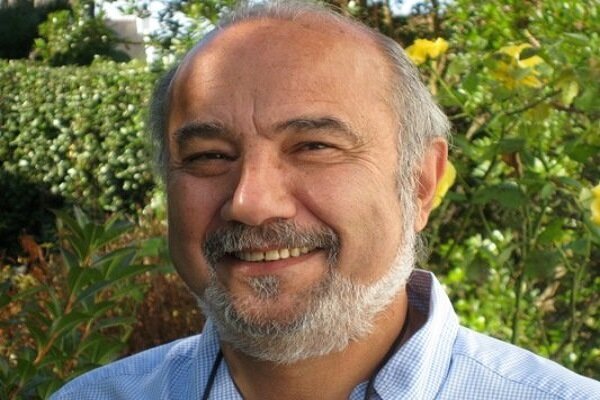
Prof. Hossein Askari, Economist, Emeritus Professor of Business and International Affairs at George Washington University said that undoubtedly the United Nations climate change negotiations in Glasgow, or COP26, was the premier event of 2021. Could the world come to its senses and do a U-turn to save the planet?
"It has been a knife-edge year for saving the environment. In June, the World Meteorological Organization (WMO) stated "2021 is a make-or-break year for climate action, with the window to prevent the worst impacts of climate change—which include ever more frequent more intense droughts, floods and storms—closing rapidly.”
The melting of glaciers at the poles are irreversible. Extreme weather events have been the norm. Professor Petteri, Secretary-General of the WMO said “It rained – rather than snowed - for the first time on record at the peak of the Greenland ice sheet. Canadian glaciers suffered rapid melting. A heatwave in Canada and adjacent parts of the USA pushed temperatures to nearly 50°C in a village in British Columbia. Death Valley, California reached 54.4 °C during one of the multiple heatwaves in the southwestern USA, whilst many parts of the Mediterranean experienced record temperatures. The exceptional heat was often accompanied by devastating fires.” WMO reported, "2021 is a make-or-break year for climate action, with the window to prevent the worst impacts of climate change—which include ever more frequent more intense droughts, floods and storms—closing rapidly.” WMO went on to add “Record atmospheric greenhouse gas concentrations and associated accumulated heat have propelled the planet into uncharted territory, with far-reaching repercussions for current and future generations.” In 2021, sea levels reached a new high with ocean warming and ocean acidification.
For many scientists, 2021 has demonstrated how we have failed. Global warming has become irreversible and the best that we can hope for is to slow its speed. Did COP26 achieve at least this target? While the jury is still, the results have been disheartening. There was a lot of talks but little concrete came out and with the specific commitment to bring them to fruition. But as disheartening has been the lack of resolve in the United States to live up to its responsibilities. Historically, the U.S. has been the world’s biggest polluter and even today it ranks second behind China. Yet, a bill that would signal a meaningful effort by the U.S. to combat climate change was at least temporarily sidelined. A Senator from a small (population less than 2 million) coal state could not see that the climate provision in the bill was so important that it trumped all else.
I believe that 2021, and COP26, will be remembered as the year when the world failed to save the planet and its future generations."
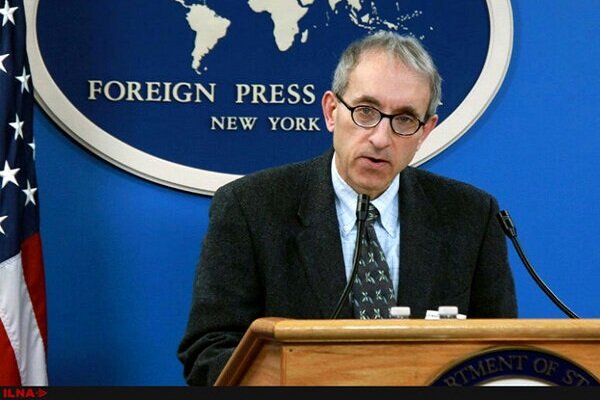
Prof. Robert Y. Shapiro, professor and former chair of the Department of Political Science at Columbia University called the Jan. 6th assault on the US Capitol an important event in the US.
"It was a stunning attempt to overturn the election of the world's greatest democracy and showed that this democracy was under an existential threat. I hope this is helpful. Please send me a link to what you post on this," he said.
Interviews by Zahra Mirzafarjouyan










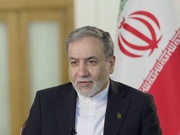
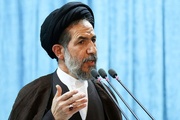











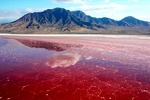
Your Comment